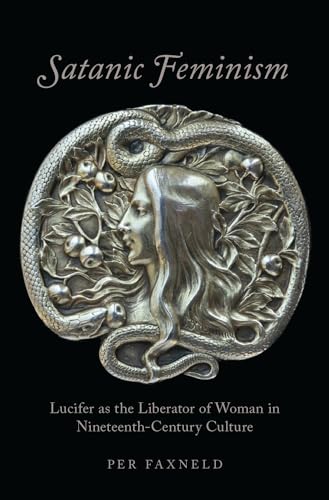Satanic Feminism
Lucifer as the Liberator of Woman in Nineteenth-Century Culture (Oxford Studies in Western Esotericism)
Per Faxneld
BOOK REVIEW

In a world where the whispers of patriarchy still echo hauntingly through the corridors of power, Satanic Feminism: Lucifer as the Liberator of Woman in Nineteenth-Century Culture emerges as a radical manifesto, drawing back the curtains on an epoch where women dared to embrace the forbidden. Per Faxneld's audacious work does not merely challenge the norms of the 19th century; it dismantles them-brick by brick, belief by belief-leaving readers gasping for breath amid the revelation of how deeply entangled the concepts of feminism and demonology really are. 😈
From the very first page, you're ricocheted into a labyrinthine narrative that examines the paradox of female liberation through figures once demonized. Faxneld deftly spins together threads of occultism and socio-political revolution, pressing on the throbbing nerve of an era that sought to repress women's desires and ambitions. This isn't just a book; it's a blasphemous journey that tantalizes your intellect and spirituality alike, compelling you to reassess the very nature of liberation.
Lucifer, a figure often relegated to the shadows, takes center stage as a symbol of rebellion against oppressive norms. The ways in which women in the 19th century appropriated his image is nothing short of mesmerizing. With audacity and eloquence, Faxneld reveals how various feminist thinkers and writers of the time utilized the figure of Satan as a liberator-a beacon of empowerment in a society steeped in rigid moralism. He peels back layers of history, making the case that embracing the 'satanic' was, in fact, about claiming one's agency, about taking control of one's narrative in an age when silence was the expected virtue for women.
Expect your brain to buzz with newfound understanding as you traverse through passages laden with cultural critiques, literary analysis, and insightful historical contexts. You're not merely skimming through pages; you're engaging in a furious love affair with ideas that will ignite your soul. The social revolutions brewing in the 19th century are juxtaposed against the backdrop of religious condemnation, and Faxneld's analytical prowess will lead you to question: how can something considered 'evil' serve as a force for righteous rebellion? 🔥
Responses to Faxneld's audacious premise range from awe to outrage. Some readers celebrate the book as a refreshing lens through which to explore feminist history, while others recoil in disbelief at the conflation of radical feminism with satanic iconography. Critics argue the author dangerously romanticizes figures steeped in moral controversy, suggesting that he risks glorifying elements of a dark tradition. Yet, it's precisely this kind of divisive conversation that Satanic Feminism aims to elicit. The shockwaves it sends through ideological boundaries provoke essential debates about what true liberation looks like. Are we willing to embrace the 'dark' aspects of ourselves for the sake of freedom? 🤔
As you navigate through the pages, it becomes increasingly clear that Satanic Feminism transcends the conventional boundaries of a historical study. Per Faxneld's exquisite prose and cutting-edge research not only captivate but compel readers to address their own biases and misconceptions. The figures he explores-women who were both victims and architects of their fate-will linger in your mind long after you have closed the book.
And herein lies the emotional crescendo: you are invited into a space where shame meets empowerment, where the so-called 'taboos' of femininity twist and turn into symbols of strength. The author doesn't just inform; he transforms, igniting a fire within readers that insists they not only witness but participate in the reclamation of these narratives.
As you delve deeper into this exceptional work, the alchemy of Faxneld's argument may just cause a tectonic shift in your understanding of feminism's historical trajectory. The compelling interplay between Satan and feminine independence is explored in ways that are simultaneously shocking and enlightening. You will find layers upon layers of meaning, current and relevant, challenging your perceptions of both history and modern gender discourse.
Prepare to rethink everything you thought you knew about the marriage of feminism and esoteric thought. Satanic Feminism is not merely an intellectual exploration; it's a seductive call to arms, an invitation to reclaim the narrative from the ashes of the past. Dare to read it, and you may find yourself confronting demons you didn't know you had, and emerging-like Lucifer himself-reborn and empowered. 🌕✨️
📖 Satanic Feminism: Lucifer as the Liberator of Woman in Nineteenth-Century Culture (Oxford Studies in Western Esotericism)
✍ by Per Faxneld
🧾 576 pages
2017
#satanic #feminism #lucifer #liberator #woman #nineteenth #century #culture #oxford #studies #western #esotericism #faxneld #PerFaxneld